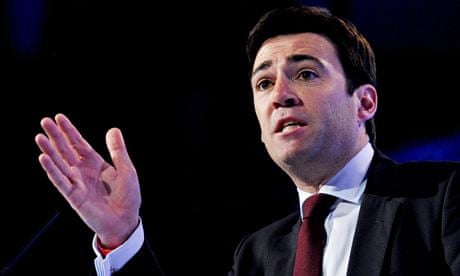Radical plans to increase national insurance contributions to plug a looming £30bn a year "black hole" in NHS funding and pay the spiralling costs of care for the elderly are being examined by Labour's policy review.
The Observer has learnt that the idea is among options being considered to ensure NHS and care costs can be met under a future Labour government, without it having to impose crippling cuts on other services in successive budgets.
Senior party figures have confirmed that a scheme advanced by the former Labour minister Frank Field – under which funds from increased NI would be paid into a sealed-off fund for health and care costs – is being examined, though no decisions have been taken.
Recent figures based on data from NHS England and the Nuffield Trust and produced by the Commons library suggest that NHS costs alone will go from £95bn a year now to more than £130bn a year by 2020.
Field, who has discussed his ideas with the shadow health secretary, Andy Burnham, and the chair of the policy review, Jon Cruddas, argues that without drastic action the NHS will not survive in anything like its present form. He believes that people would accept the idea of contributing extra to the NHS, the most popular public service, if they were guaranteed that the additional money would be spent exclusively on health and social care.
"Labour desperately needs two or three big ideas to capture the imagination and this should be one," Field said. "In no way can we have anything like the NHS we have now if we are running such a huge deficit every year. We have to think about the second phase of the life of the NHS. It has to be reborn. Otherwise it will be unsustainable in a few years' time."
The Labour leader, Ed Miliband, is under growing pressure from some in his shadow cabinet to produce radical, eyecatching policies as the economy improves and the election nears.
Some senior party figures say NI increases to save the NHS in its current form would show the party is fiscally responsible and free people from the anxiety that they might have to sell their homes to pay for care in old age.
Burnham, while keen to explore radical options, is wary of increasing NI in a way that would mean younger people in work having to pay the care costs of those already of pensionable age.
For the elderly, he favours other options including a plan floated by Labour before the last election for a levy of 10% to 15% on people's estates after death to pay care costs. But NI rises for the rest of the population are being considered as a possible long-term solution.
To address Burnham's concerns, Field proposes that those now over pension age would be asked to continue to pay NI if they wanted free care. Otherwise they would have to pay under the current system.
While the shadow chancellor, Ed Balls, is seen as a potential obstacle, it was his ally Gordon Brown who in 2002 introduced a 1% hike in NI to fund the biggest ever increase in health funding – a move that proved surprisingly popular.
Field says an NI rise of 1% would plug the immediate "black hole". Extra contributions thereafter would go into a dedicated fund that would be run as a mutual with elected members negotiating each year's contributions.
A spokesman for Burnham said: "The challenges of the ageing society are so great that the debate about how to meet them needs to be open to new thinking, as long as it is consistent with the enduring values of the NHS.
"Right now, we are seeing huge cuts to social care leading to ever-greater hospitalisation of older people. That is no answer to the ageing society. There can be no long-term solution for the NHS without also a sustainable solution for social care."
Labour is already committed to combining the budgets for health and social care. Critics of the current system say there is no incentive for social services to try to keep old people out of hospital, because hospital costs come from a different budget.
NHS costs are rising rapidly because of an increasing elderly population and the rising costs of new technologies, treatments and drugs.











Comments (…)
Sign in or create your Guardian account to join the discussion